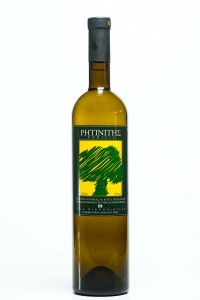 Warning on Retsina
Warning on Retsina
The waitress warned against this wine, saying that the wine, “Retsina,” was unlike any other wine. Most people send it back so she’d learned to caution those who ordered it from repeat rejections.
Vodka in the Dasani
Retsina really was unlike any other wine, just by smelling you knew something was different. Pinesol. Straight up Pinesol. No other wine smells (and tastes!) like Pinesol and unless you know what to expect, it’s like gulping vodka when you grab the water bottle after exercising only to discover that your roomate put the Absolut in the Dasani bottle. True story.
Love in the Time of Socrates
Retsina dates back to the time of Socrates, Solon and Pericles. In fact, it shows up in Plato’s Symposium, a fact noted in more than one academic publication. When Plato was sitting at Socrates’s knee, writing down the words of wisdom, Socrates was throwing back Retsina wine and burping up pine and eternal questions.
Different How?
Retsina wine predates barrels, so the Greeks made due with pine resin to preserve their grape juice and ferment it into wine. Already in the first century, the Romans were griping about the taste of Retsina and decrying the use of premium grapes in Retsina wines. Anecdotal history even says that when the Romans invaded, the Greeks intentionally put pine resin in their wines to avoid the Romans from stealing their wine.
Taste
Pinesol, straight up Pinesol with a hint of mint on the burp. Few outside Greece enjoy it but I’m a sadist who smells like a pinecone.
Detail Up!
Retsina – Ritintis Nobilis by Gaia Estate at their Nemea Estate in Peloponnese, Greece (h/t for the image to these guys)
Random Googles
* Lots of grapes can be made into Retsina. Roditis, Savatiano and Assyrtiko are the most famous.
* Roditis is a late-harvester but still retains high acidity levels, which is why the Greeks in the Peloppenesian islands, especially the northern islands, adore it.
* Every part of Greece is a productive winemaking region. Economists disagree.